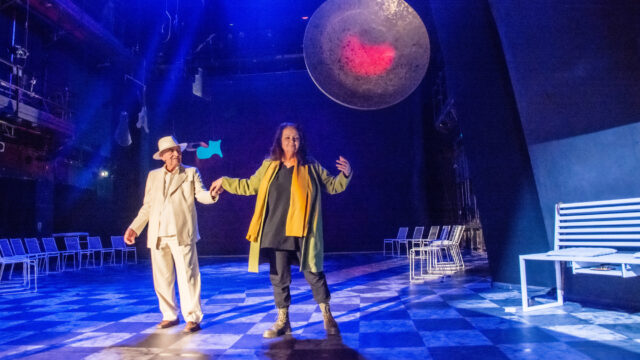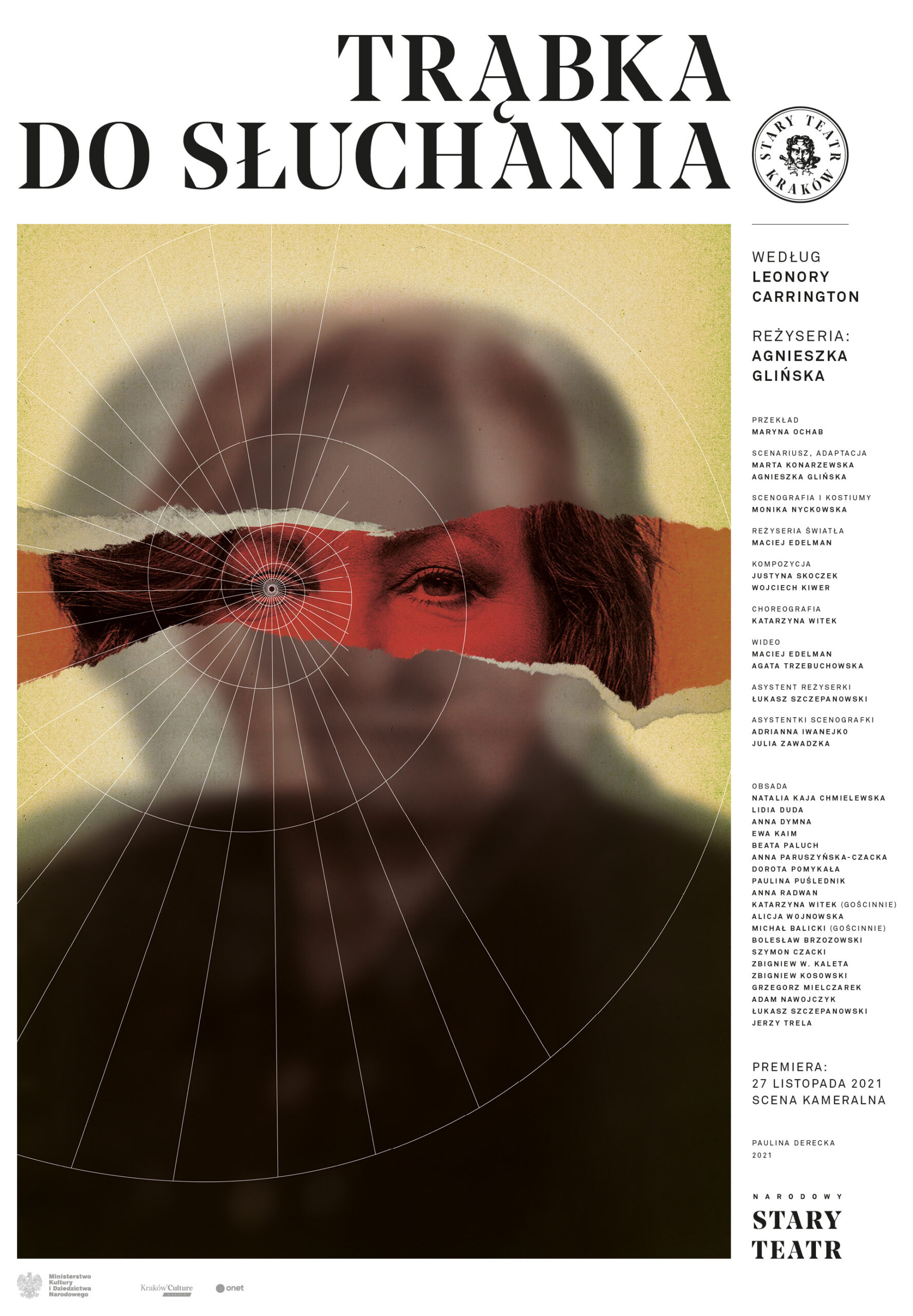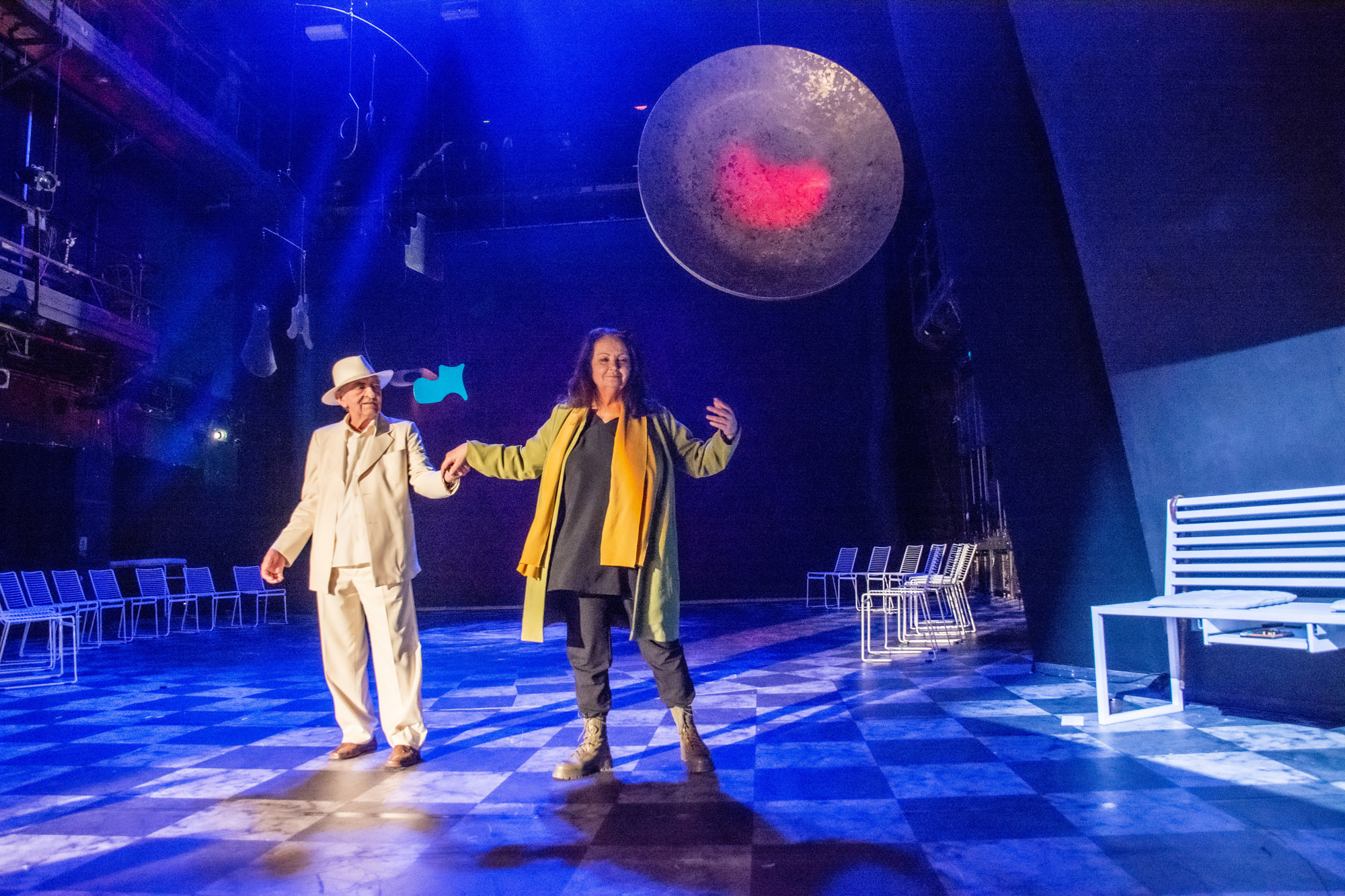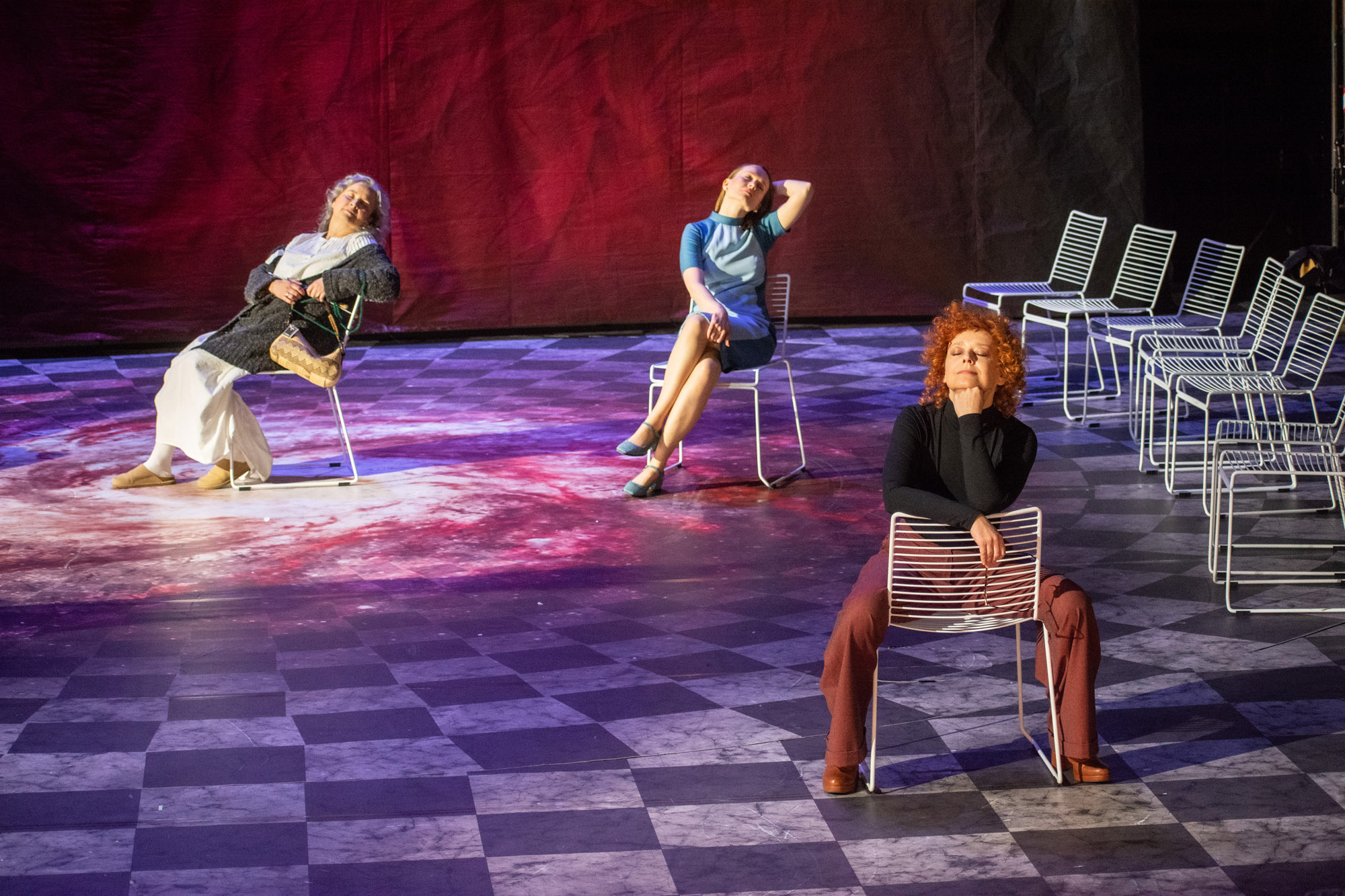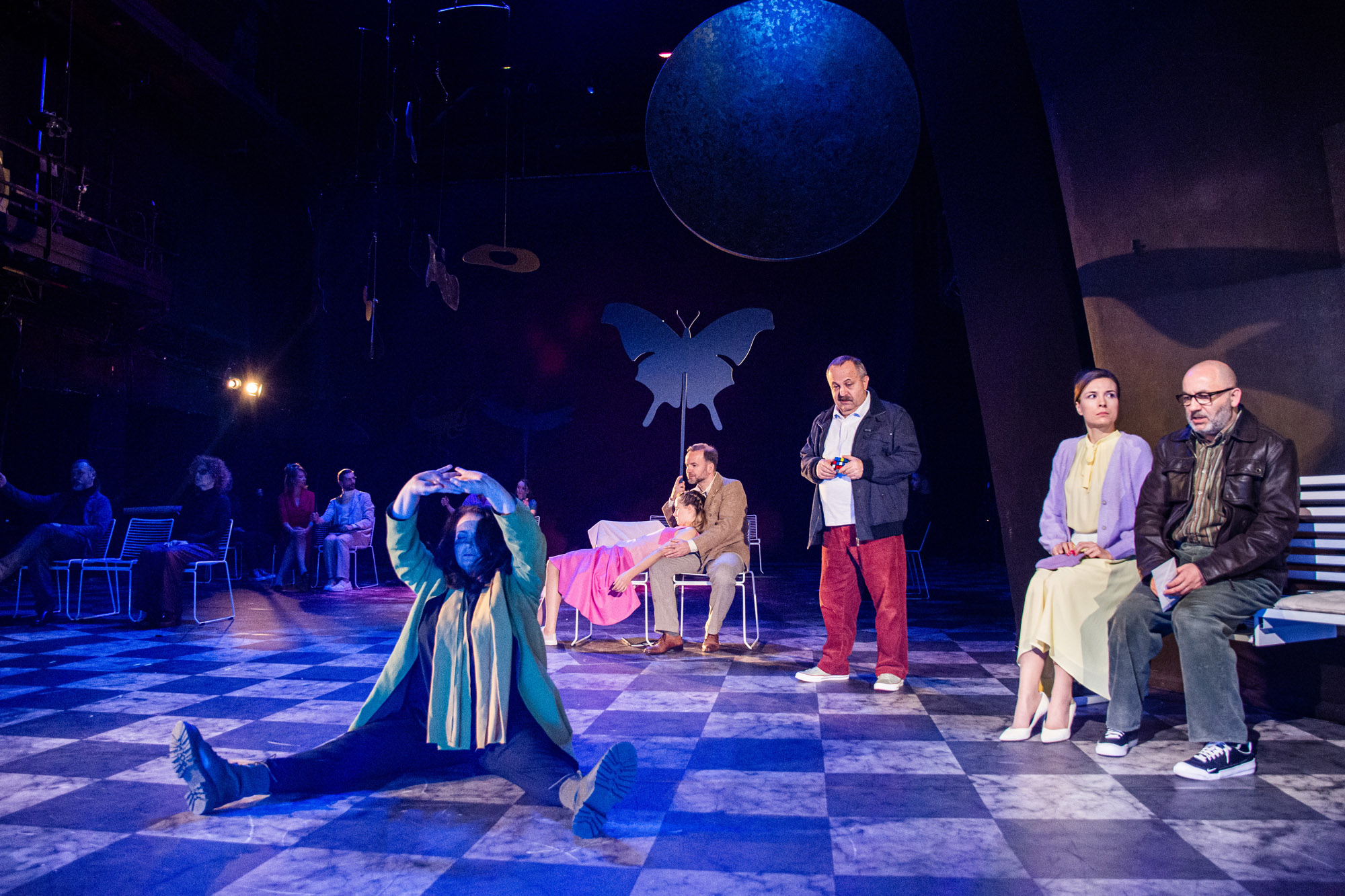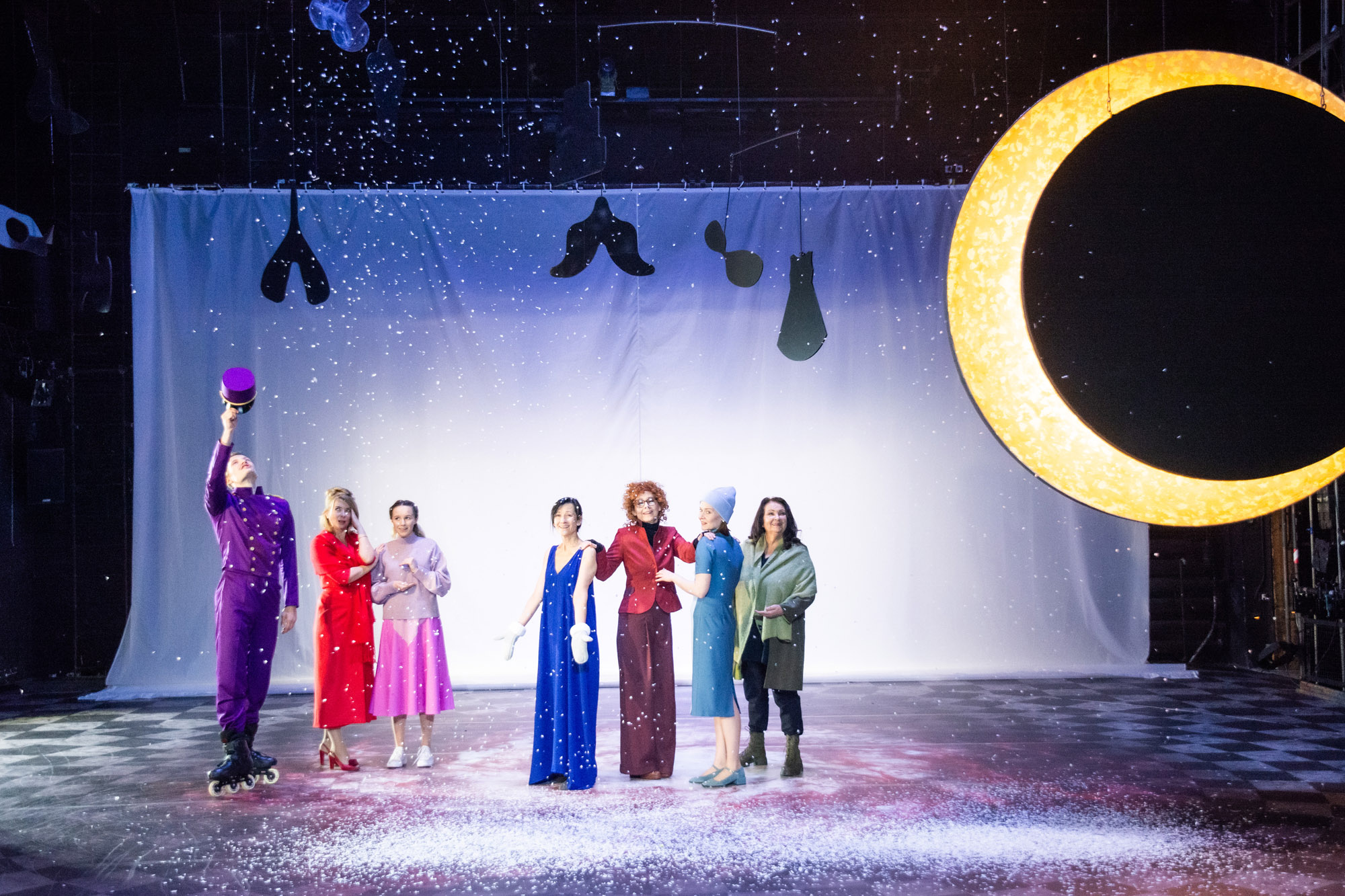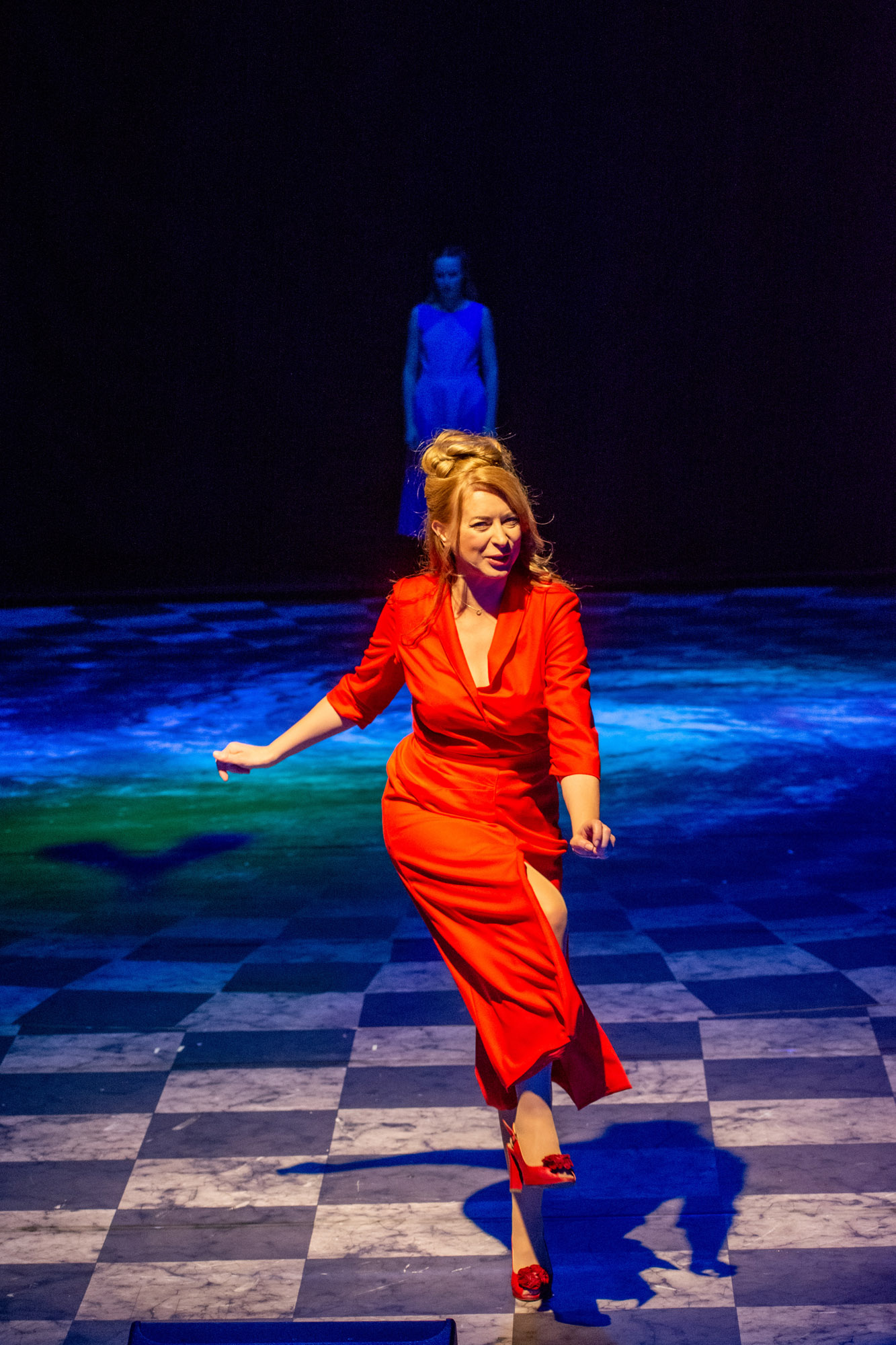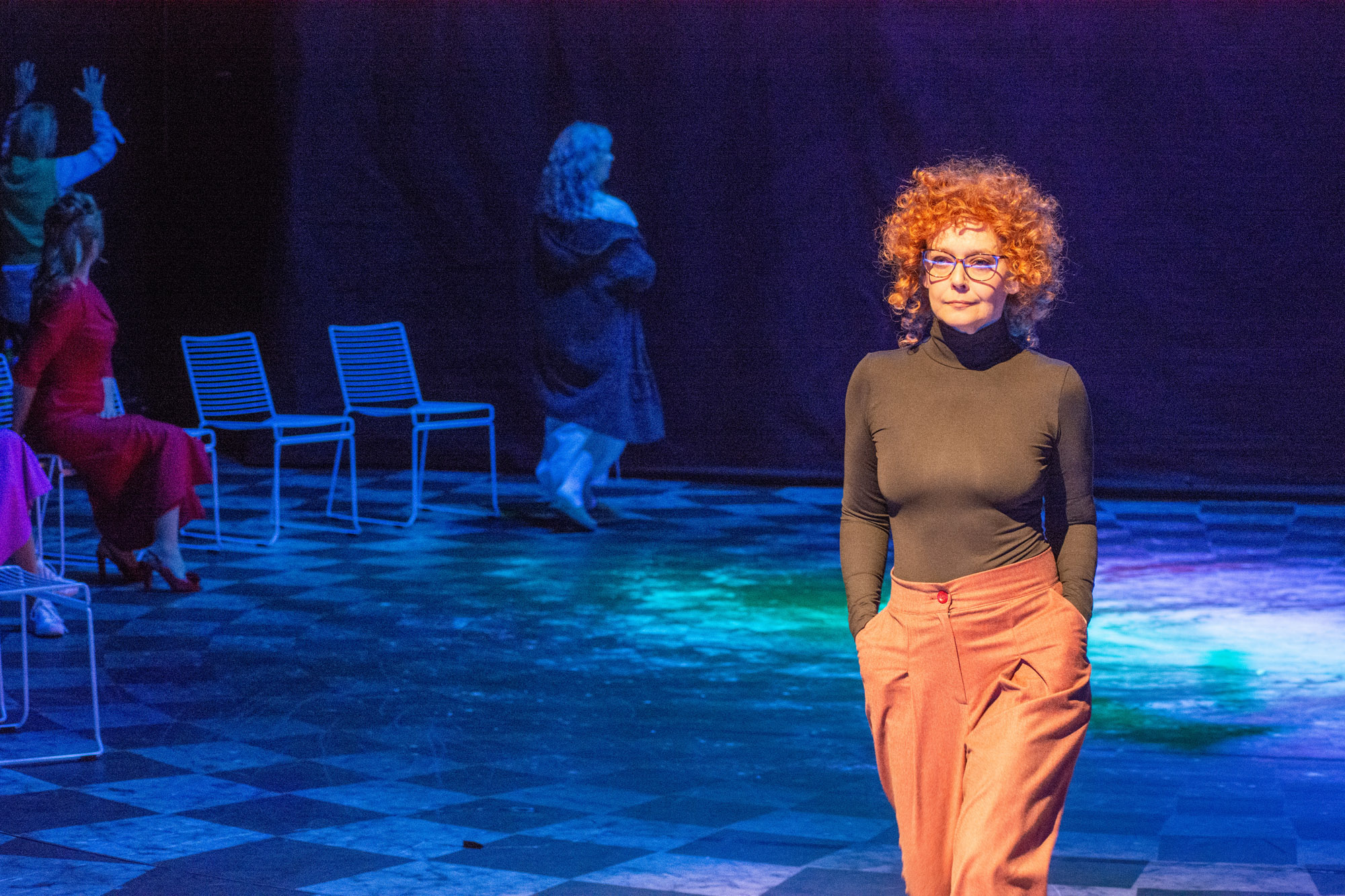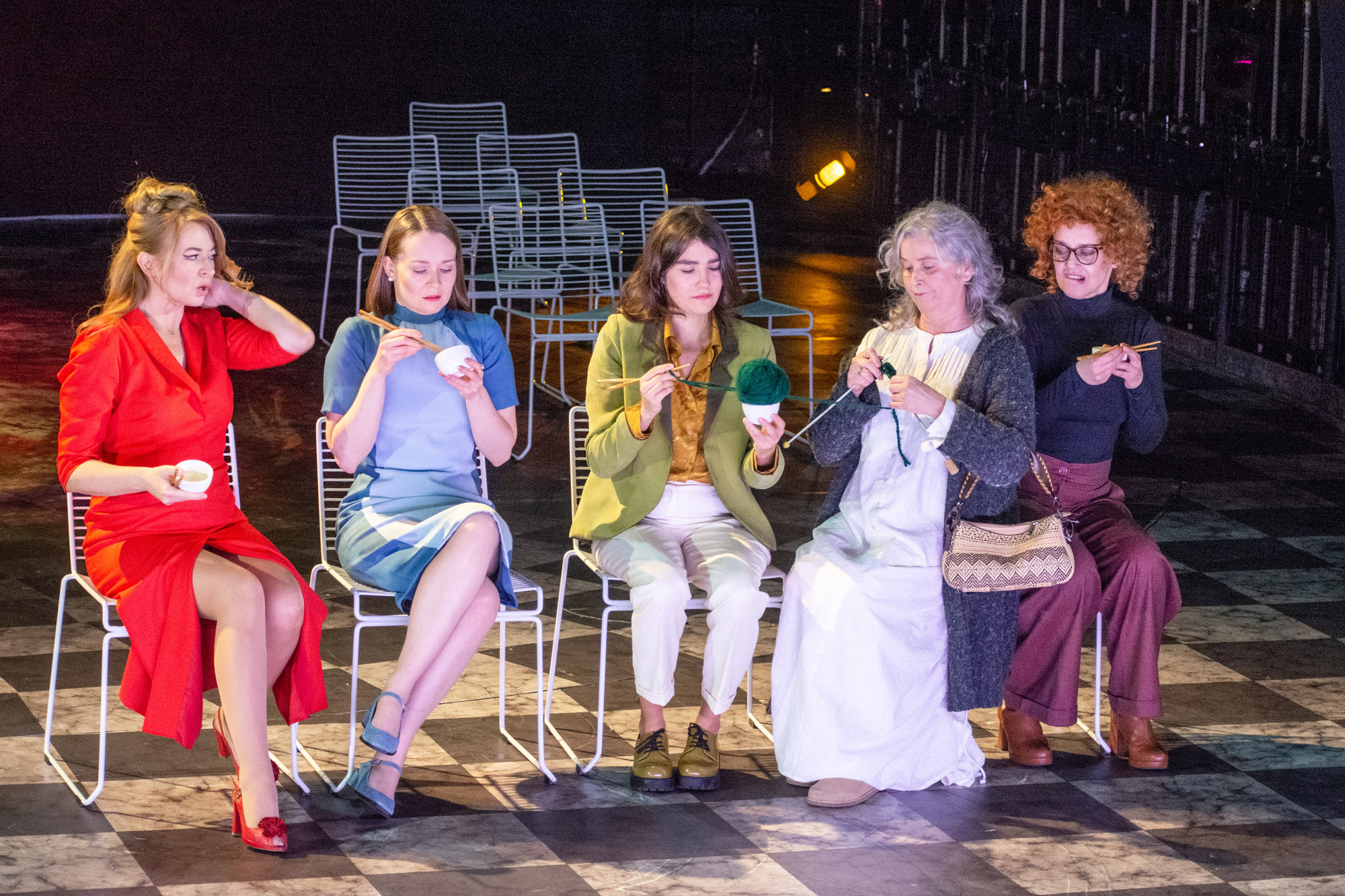Repertoire
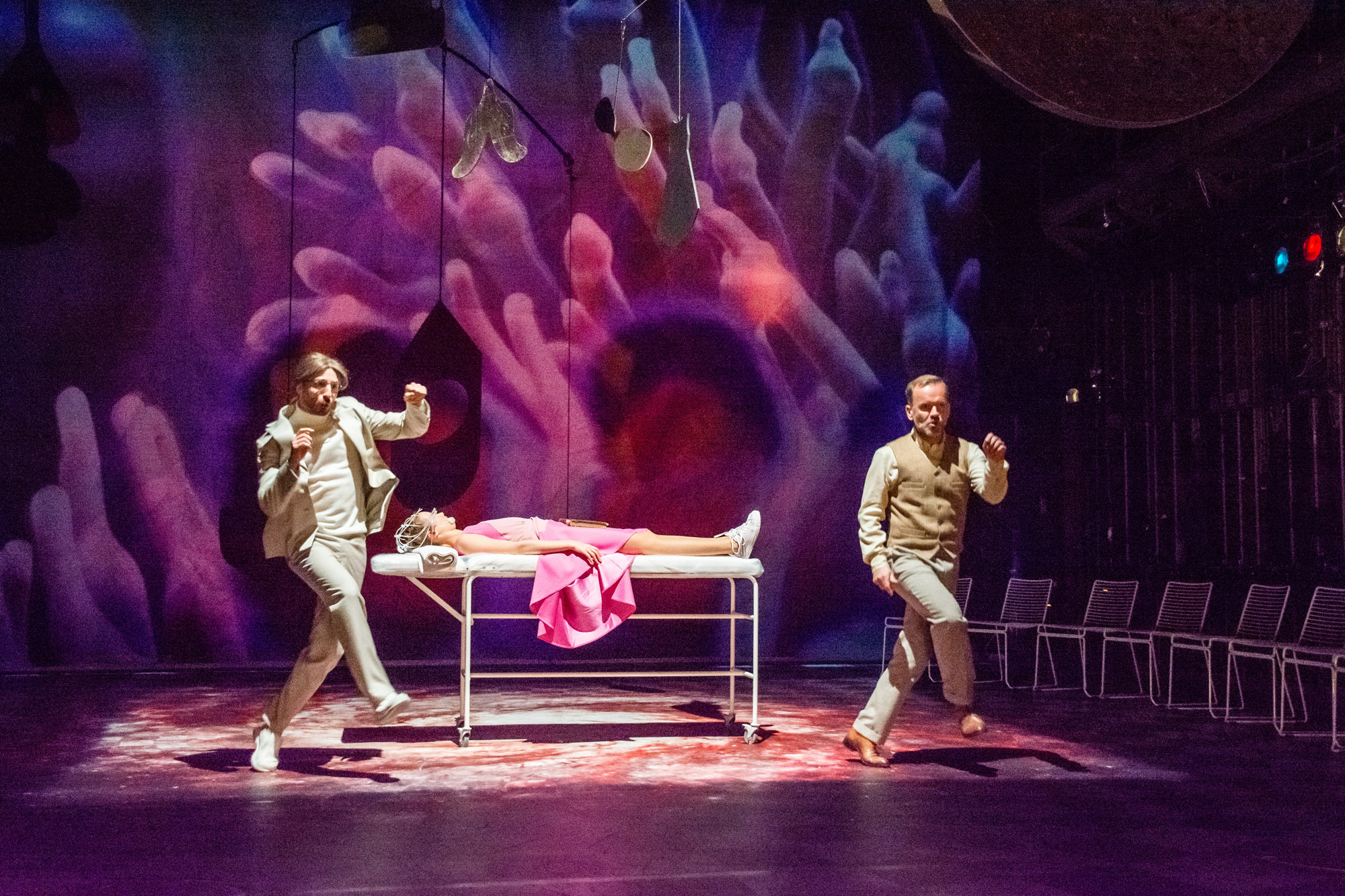
The Hearing Trumpet
Dir. Agnieszka Glińska
ul. Starowiślna 21
When, in The Hearing Trumpet, a novel by Leonora Carrington, a painter, sculptor, and idolized proponent of surrealism and feminism, the eccentric ninety-year-old Marion receives the titular item from her friend Carmelia, the first news that reaches her ears is unfortunate: the family for whom “she was a source of constant anxiety for twenty years” wants to hand her over to an old-age home. Soon Marion ends up in a place more resembling a medieval castle than a hospital, surrounded by oddly-shaped homes—a toadstool, a cake, or a cuckoo clock—inhabited by other patients of the “Tabernacle of Light,” a community managed by Doctor Gambit, whose passion is studying feminine neuroses and hysteria. His unconventional cures, serving “to observe and dissolve women’s kinky habits (the source of their joy and pleasure) in the light of Objective Consciousness” and his maxims, such as “Effort is always rewarded when we renounce Recompense,” seem to quarrel with a principle he instills in his patients, that they should “remember about themselves.”
Adapting The Hearing Trumpet, Agnieszka Glińska and Marta Konarzewska show, with Carrington’s customary distance and sense of humor, drawing from the surrealist aesthetic of her work and colorful biography (a relationship with Max Ernst, a stay in a psychiatric hospital), how hard it is to come to know your own self, being entwined in a social system of obligatory roles and principles. They perceptively examine the often vague limits between health and sickness, sanity and madness. What keeps us on one side? What’s on the other side? Where exactly is the source of our creativity
Glińska has joined coauthor of the script, Marta Konarzewska, in staging Leonora Carrington’s “The Hearing Trumpet”, whose main subject is the tactics of women’s liberation in a world ruled and orchestrated by men, and how friendly alliances can be forged in today’s world, and with whom. […] The play uses humour as a tool for building the characters (male and female both), laughter also becomes a tool of resistance […]. Paradoxically, the play shines most brightly not when the female protagonists gain the upper hand over the men and the rules of the institutions they control. They are most witty and energetic when they can be in their own company, show each other kindness, and enjoy just being there.
Zuzanna Berendt, Teatralny.pl
Cast
- Natalia Kaja Chmielewska
- Lidia Duda
- Anna Dymna
- Ewa Kaim
- Beata Paluch
- Anna Paruszyńska - Czacka
- Dorota Pomykała
- Paulina Puślednik
- Anna Radwan
- Katarzyna Witek (guest)
- Alicja Wojnowska
- Michał Balicki (guest)
- Bolesław Brzozowski
- Szymon Czacki
- Zbigniew W. Kaleta
- Zbigniew Kosowski
- Grzegorz Mielczarek
- Adam Nawojczyk
- Łukasz Szczepanowski
- Jerzy Trela (Voice)
Creators
- Agnieszka Glińska Director
- Maryna Ochab Translation
- Marta Konarzewska, Agnieszka Glińska Script/adaptation
- Monika Nyckowska Scenography and costumes
- Maciej Edelman Lighting director
- Agata Trzebuchowska, Maciej Edelman Video
- Justyna Skoczek Composition
- Katarzyna Witek Stage Movement
- Łukasz Szczepanowski Assistant director
- Adrianna Iwanejko, Julia Zawadzka Assistant scenographer
- Zbigniew S. Kaleta Stage manager / prompter
